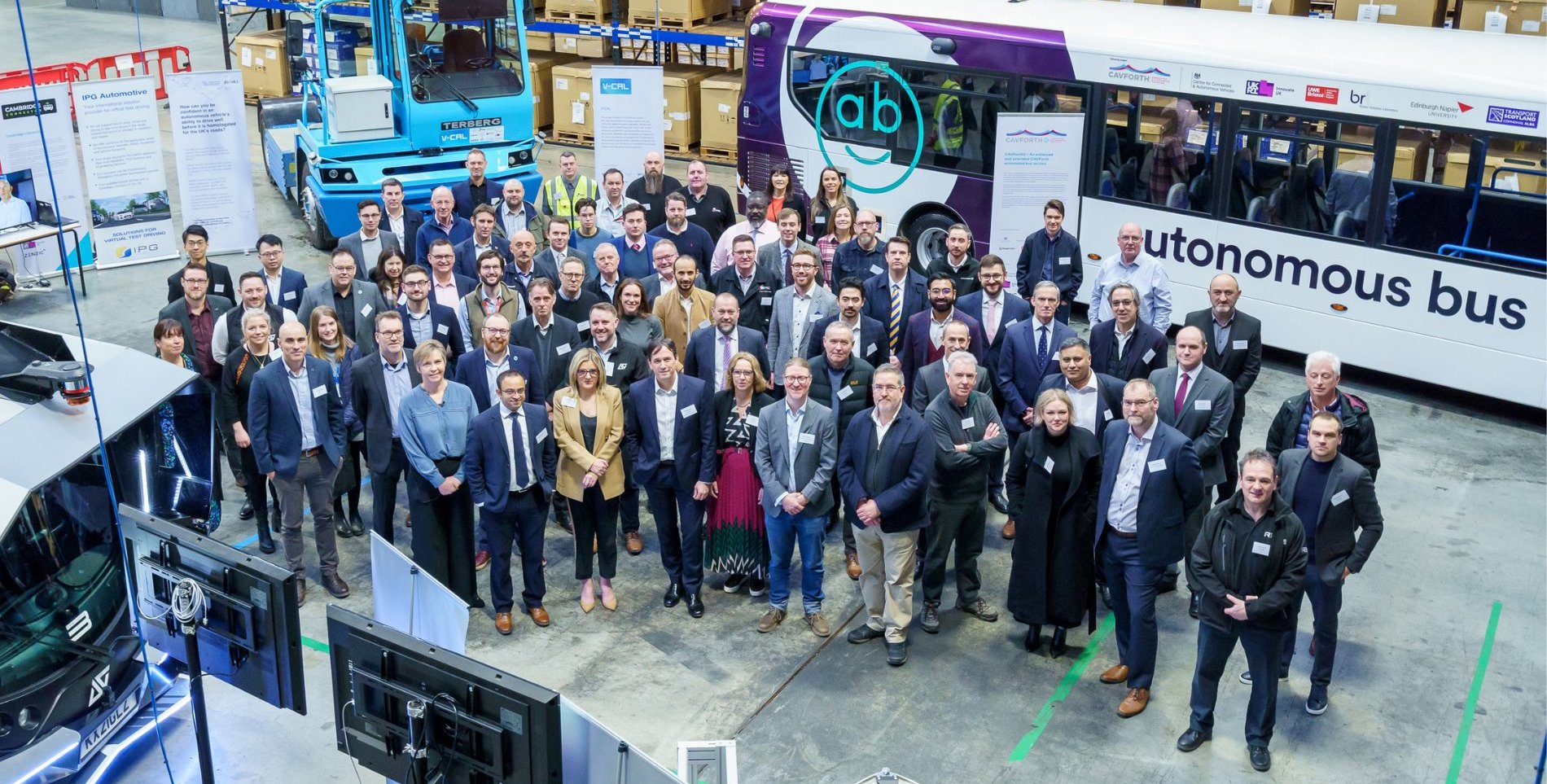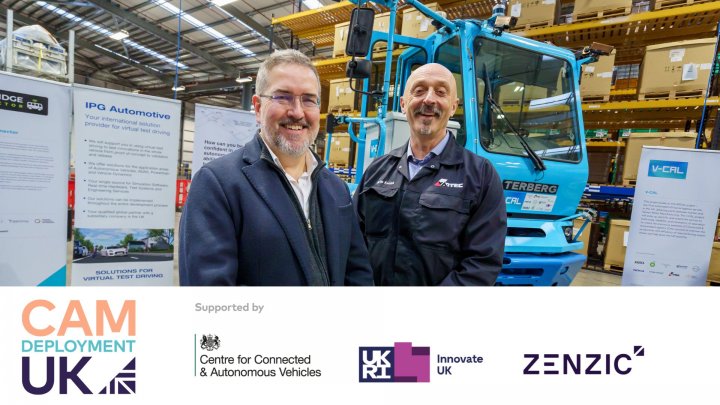


Six projects from right across the UK awarded £81 million in combined government and industry funding for commercial self-driving passenger and freight services.
The six successful projects from the Centre for Connected and Autonomous Vehicles (CCAV) Deployment competition form the most advanced set of commercial, self-driving passenger and freight operations anywhere in the world.
The grants, which are part of the Centre for Connected and Autonomous Vehicles (CCAV) Connected and Automated Mobility (CAM) programme, will help British companies seize early opportunities to develop experimental projects into scalable commercial offerings, ready for the market.

Explore the CAM Deployment UK projects
 Connector
Connector

The Connector project will trial three self-driving vehicles providing passenger services from Park & Ride sites to the University of Cambridge’s West Cambridge Campus and the Cambridge Biomedical Campus, leveraging a private 5G network to help ensure continuity of service.
 CAVForth2
CAVForth2

This project will see Stagecoach, the UK’s largest bus operator, extend the route of the existing CAVForth autonomous bus service, from Edinburgh Park station to Dunfermline city centre. The extended route capability will come from an upgraded version of the CAVStar® ADS (Automated Drive System) that will be developed by Fusion Processing Ltd during the project. CAVForth2 will also utilise an autonomous version of the new Enviro100AEV electric bus from Alexander Dennis.
 Harlander
Harlander

The ‘Harlander Project’ will establish an autonomous shuttle service in Belfast Harbour Estate providing a last mile connectivity between the rail link at Titanic Quarter railway station and Queen’s Road.
 SCALE
SCALE

SCALE will operate a new fleet of passenger carrying self-driving vehicles, servicing a route linking Birmingham International rail station, the NEC and Birmingham Business Park.
 Sunderland Advanced Mobility Shuttle
Sunderland Advanced Mobility Shuttle

This project will help define a more sustainable future for urban mobility through the delivery of several autonomous zero-emission shuttles, along a 5km busy city centre route, integrating with and supplementing existing public transport provision and testing remote supervision.
 V-CAL
V-CAL

This project builds on the 5GCAL project – the first automated 40-tonne logistics service in the UK, delivering parts between Vantec and Nissan Motor Manufacturing. The V-CAL project will scale up, electrify, and extend the service to build scale, reliability, and consistency of operation to unlock the enormous potential of Connected & Automated Logistics (CAL) services to improve the productivity and efficiency of manufacturing supply chains and help grow the UK economy.
{{ teamMember.name }}
{{ teamMember.title }}
